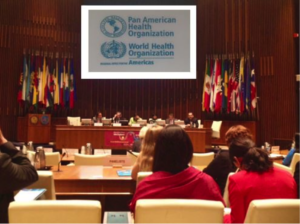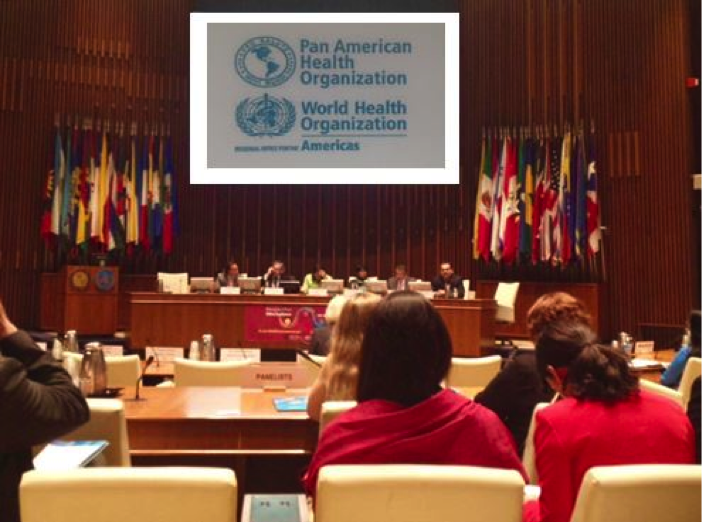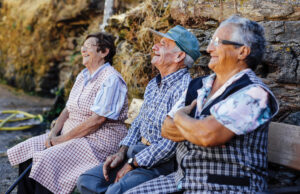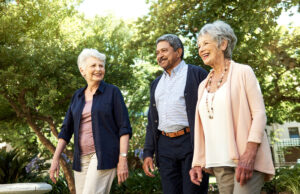Advocacy | Aging | Global Ageing News | September 24, 2015
Implementing the Inter-American Convention on Protecting the Human Rights of Older Persons: A Call for Action
BY GlobalAgeing
By Taryn Patterson
On September 3rd, 2015 a series of experts and human rights leaders addressed the plenary session of a convening charged with outlining actionable steps to implement the Inter-American Convention on Protecting the Human Rights of Older Persons. The event was held at the Pan American Health Organization (PAHO) Regional Office for the Americas of the World Health Organization (WHO) in Washington D.C., in collaboration with the Organization of American States (OAS) and the Economic Commission for Latin America and the Caribbean (ECLAC).
On June 15th, 2015, the member states of the Organization of American States (OAS) approved the Inter-American Convention on Protecting the Human Rights of Older Persons, which was subsequently signed by the governments of Argentina, Brazil, Chile, Costa Rica and Uruguay. This action made the Americas the first region in the world to have an instrument for the promotion and protection of the rights of older persons.
Given the fact that older persons (aged 60+) in the Americas currently make up approximately 14% of the hemisphere’s population, and this proportion is set to rise to approximately 25% by the year 2050, the human rights of older persons is an urgent focus of the OAS. As Sandra Huenchuan, Ageing Specialist with ECLAC, noted “equality is a value, right, and objective, but ageing equality is often invisible and outside the policy agendas of decision-makers.”
To this end, the Convention will be useful for:
-
The promotion and development of policies and legislation to promote the full exercise of human rights by older persons;
-
Removing stigma towards older persons and preventing social isolation;
-
Preventing discriminatory practices in public and private institutions;
-
Creating positive images of ageing; and
-
Creating a greater awareness of the many contributions that older persons make to society.
The objectives for the September 2015 convening in Washington D.C. were to:
-
Bring together key stakeholders to discuss the new framework on active ageing established by Convention;
-
Propose five actionable strategies for implementing the Convention at the regional, national, and local levels;
-
Facilitate the sharing of information and data on ageing and human rights issues; and
-
Outline steps to disseminate the Convention, along with academic materials, with a particular emphasis on training tools to aid in implementation.
PAHO, the OAS, and the ECLAC called upon stakeholders to take the following five actions to facilitate the implementation of the Convention:
-
Disseminate the Convention via mechanisms that will promote eventual governmental ratification.
-
Support governments in undertaking a review of existing and new policies, plans, and laws with regard to the human rights of older persons.
-
Strengthen the inclusion of older persons within the work of Inter-American and United Nations agencies by making sure their programs and policies address issues faced by older persons.
-
Facilitate training initiatives for governmental and legislative authorities, healthcare workers, and other key social organizations on how the framework of the Convention can help to meet the human rights and needs of older persons.
-
Encourage collaboration between national initiatives and civil society organizations to build capacity on ageing issues and foster greater access to care and resources that older persons need.
The general consensus is that we must move beyond non-binding instruments to a binding document that ensures the protections of older persons, particularly within areas such as access to non-discriminatory comprehensive care including palliative care, violence against older populations, and continued recognition of elder contributions to society. According to the Director of PAHO, Dr. Carissa Etienne, we must “encourage international communities, non-governmental organizations, academic researchers, and governments across the globe to collaborate in order to build capacity on ageing issues”. She added “next steps must be to disseminate the convention and encourage governmental ratification”.
Although the Resolution was passed, it was not endorsed by Canada and the United States. Its future ratification would carry the obligation of State parties to adopt measures to respect, promote, and ensure the human rights of older persons in all spheres of society. For the Convention to enter into official force it is necessary that at least two signatory countries ratify it.
To get to this point, however, we must move beyond talking points and take action.

Recently Added
Translate »





